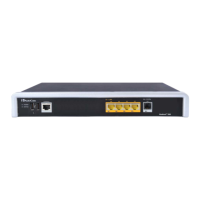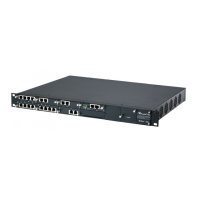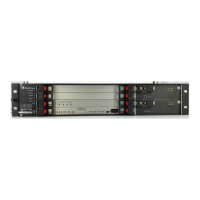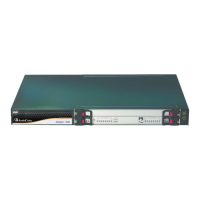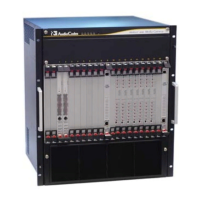User's Manual 436 Document #: LTRT-27055
Mediant 1000B Gateway & E-SBC
Parameter Description
Select the option if the SIP entity requires RTP redundancy.
[2] Disable = The device removes the RTP redundancy payload
(if present) from the SDP offer/answer for calls received from or
sent to the SIP entity. Select the option if the SIP entity does not
support RTP redundancy.
Note:
To enable the device to generate RFC 2198 redundant packets,
use the IPProfile_RTPRedundancyDepth parameter.
To configure the payload type in the SDP offer for RTP
redundancy, use the RFC2198PayloadType.
RTCP Mode
sbc-rtcp-mode
[IPProfile_SBCRTCPMode]
Defines how the device handles RTCP packets during call sessions
for the SIP entity associated with the IP Profile. This is useful for
interworking RTCP between SIP entities. For example, this may be
necessary when incoming RTCP is not compatible with the
destination SIP entity's (this IP Profile) RTCP support. In such a
scenario, the device can generate the RTCP and send it to the SIP
entity.
[0] Transparent = (Default) RTCP is forwarded as is (unless
transcoding is done, in which case, the device generates RTCP
on both legs).
[1] Generate Always = Generates RTCP packets during active
and inactive (e.g., during call hold) RTP periods (i.e., media is
'a=recvonly' or 'a=inactive' in the INVITE SDP).
[2] Generate only if RTP Active = Generates RTCP packets only
during active RTP periods. In other words, the device does not
generate RTCP when there is no RTP traffic (such as when a call
is on hold).
Note: The corresponding global parameter is SBCRTCPMode.
Jitter Compensation
sbc-jitter-compensation
[IpProfile_SBCJitterCompensa
tion]
Enables the on-demand jitter buffer for SBC calls. The jitter buffer
can be used when other functionality such as voice transcoding are
not done on the call. The jitter buffer is useful when incoming
packets are received at inconsistent intervals (i.e., packet delay
variation). The jitter buffer stores the packets and sends them out at
a constant rate (according to the coder's settings).
[0] Disable (default)
[1] Enable
Note:
The jitter buffer parameters, 'Dynamic Jitter Buffer Minimum
Delay' (DJBufMinDelay) and 'Dynamic Jitter Buffer Optimization
Factor' (DJBufOptFactor) can be used to configure minimum
packet delay only when transcoding is employed.
This functionality may require DSP resources. For more
information, contact your AudioCodes sales representative.
SDP Handle RTCP
sbc-sdp-handle-rtcp
[IpProfile_SBCSDPHandleRT
CPAttribute]
Enables the interworking of the RTCP attribute, 'a=rtcp' (RTCP) in
the SDP, for the SIP entity associated with the IP Profile. The RTCP
attribute is used to indicate the RTCP port for media when that port
is not the next higher port number following the RTP port specified in
the media line ('m=').
The parameter is useful for SIP entities that either require the
attribute or do not support the attribute. For example, Google
Chrome and Web RTC do not accept calls without the RTCP
attribute in the SDP. In Web RTC, Chrome (SDES) generates the

